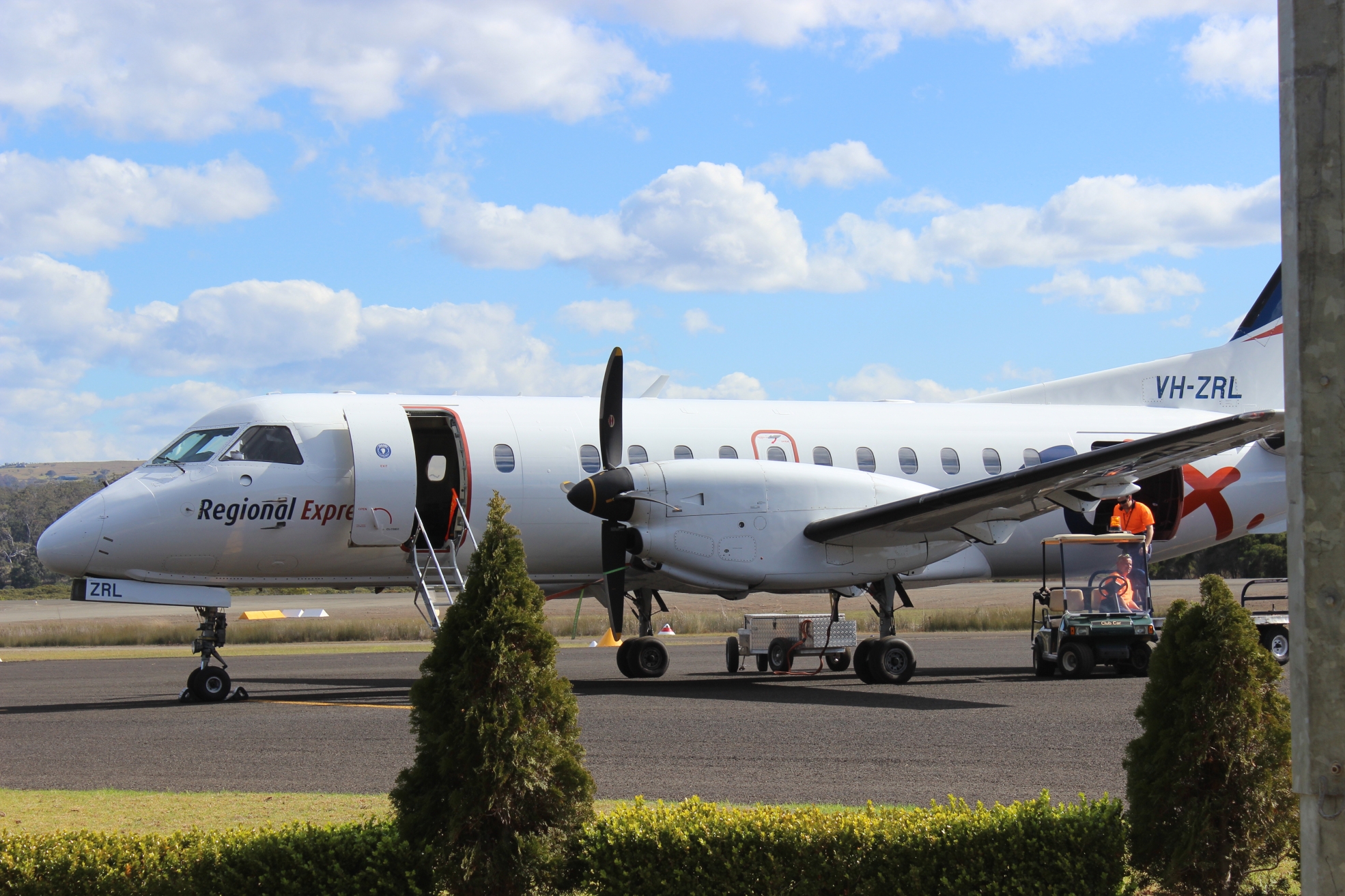Rex Airlines will operate with an all-turboprop fleet after receiving a new $60 million loan from Canberra.
The loan comes with sureties from its prospective new owner, US aviation services company Air T, which wants to finalise its purchase this year.
The American company wanted the airline’s existing debt restructured and on Tuesday, the federal government gave that assurance.
Federal Transport Minister Catherine King says $90m of the airline’s existing debt will be carried forward while the new $60m loan is in addition to $50m from Air T that will refinance the airline.
She says Air T will return more of the airline’s 56-strong Saab 340 twin-engine turboprop fleet to the skies and increase its profitable flights.
Maintenance issues means that only 30 of these Saab aircraft are currently flying, according to the government, with a target to increase that number to 44.
Air T has previously stated a preference for the Saab 340 twin-engine turboprop aircraft and says it will fund an engine renewal program. Click here for our earlier story.
King says government will retain security over all aircraft and simulators to ensure the Saab fleet cannot be sold without its approval as Rex continues to fly to regional and remote airports.
In a statement, the minister says Air T will clear a backlog of repair work that grounded aircraft with its own network of parts suppliers.
The American firm also wants to retain the current management and hire more pilots and engineers.
Rex has agreed to boost its operational aircraft from 30 to 44 and report regularly to Canberra.
King says no federal funds will be spent on the fleet.
Rex Airlines entered into administration in July 2024 and the lease on its nine Boeing 737 jet aircraft terminated while its Saab aircraft keep flying.
HELP FOR REX CREDITORS
King also says a new, and separate, $5m program to help local government and smaller airports continuing to provide air services.
Eligibility will be based on the amount owed to the organisation by Rex when it entered voluntary administration.
The Australian Airports Association (AAA) says it welcomes the news with airports owed anywhere from $45,000 to $650,000.
CEO Simon Westaway is grateful to the government for providing much-needed relief for these airports, many of which are council-run and operate at a loss.
“Many regional airports operate at a loss, burdened by ageing infrastructure, rising security requirements, regulatory pressures and staffing costs,” he says.
“The AAA has been advocating for financial relief for regional airports since Rex entered voluntary administration and we’re pleased to see the Government respond with this muchneeded support.”
He also welcomed Canberra’s decision to safeguard regional services with the new loan deal.
“By securing Rex’s Saab fleet for continued service to regional and remote communities, the Government has taken a practical step to safeguard essential air links and reinforce confidence in the future of regional aviation.”
And the Regional Aviation Association of Australia (RAAA) wants Canberra to support all regional airlines.
RAAA Chief Executive Officer Rob Walker says the loan announcement means Canberra has given over $220m to Rex.
“We are asking the government to assist all regional airlines; assistance through government backed loans, government guarantees, or tax incentives would potentially help,” he says.






